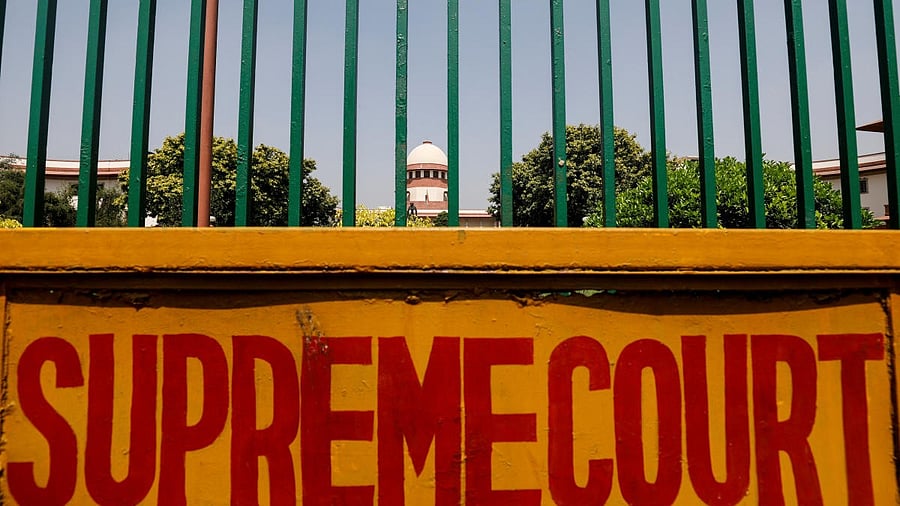
A signboard is seen outside the premises of Supreme Court in New Delhi
Credit: Reuters File Photo
New Delhi: The Supreme Court on Monday said the offence of rape, being of the gravest kind, must be invoked only in cases where there exists genuine sexual violence, coercion, or absence of free consent.
A bench of Justices B V Nagarathna and R Mahadevan allowed a plea by Samadhan, an advocate against the Bombay High Court's refusal to quash a case of rape on the promise of marriage registered on a complaint by a married woman.
Finding the case to be a consensual relationship, devoid of any coercion, fraud, or misrepresentation, the bench said, the court has, on numerous occasions, taken note of the disquieting tendency wherein failed or broken relationships are given the colour of criminality.
"The offence of rape, being of the gravest kind, must be invoked only in cases where there exists genuine sexual violence, coercion, or absence of free consent. To convert every sour relationship into an offence of rape not only trivialises the seriousness of the offence but also inflicts upon the accused indelible stigma and grave injustice," the bench said.
The court said, such instances transcend the realm of mere personal discord.
"The misuse of the criminal justice machinery in this regard is a matter of profound concern and calls for condemnation,'' the bench said in its judgment.
The court found the acts complained of in the present case occurred within the contours of a relationship that was, at the time, voluntary and willing.
"The continuation of the prosecution in such facts would be nothing short of an abuse of the court machinery,'' the bench said.
The appellant claimed it was inconceivable that he would force himself upon her for so many years without any protest or complaint. He alleged the complaint was filed only in August of 2024 when he refused to fulfil her demand of payment of Rs 1,50,000.
The court said in genuine cases, consent may stand vitiated where it is established that the promise of marriage was illusory, made in bad faith, and with no genuine intention of fulfilment, solely to exploit the woman.
It emphasised, the law must remain sensitive to such genuine cases where trust has been breached and dignity violated, lest the protective scope of Section 376 of the IPC be reduced to a mere formality for those truly aggrieved.
"At the same time, the invocation of this principle must rest upon credible evidence and concrete facts, and not on unsubstantiated allegations or moral conjecture,'' the bench said.
